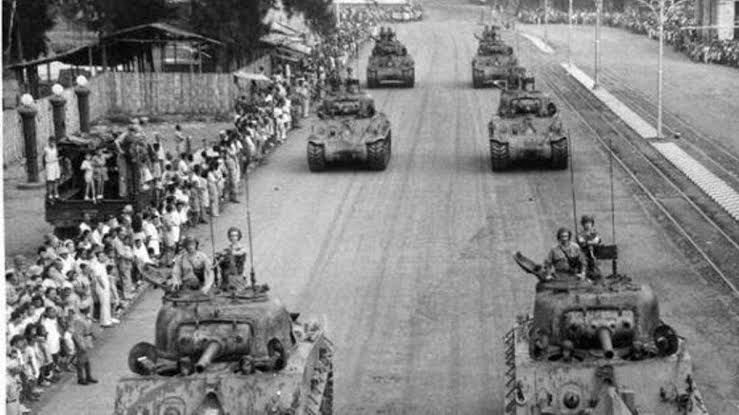
Lieutenant Colonel Eddie Soekardi still remembers what happened that morning. The morning arrival in Yogyakarta was surprised by the arrival of Dutch P.51 bombers and Spitfires. They showered the capital city of the Republic of Indonesia (RI) with hundreds of bombs and sprayed every moving object underneath with a barrage of 12.7 caliber automatic rifles.
"I, who was going to go to Maguwo air field, decided to just go to the Palace to meet President Sukarno," recalled the officer from the Siliwangi Division.
Eddie Soekardi was one of the officers who would accompany President Sukarno's entourage to India on December 19, 1948. He planned to stay in India to study military science as well as assisted the Indonesian defense attache in New Delhi, the capital of India.
Dutch military aircraft bombs targeted various buildings that functioned as military installations belonging to the Republic. But not infrequently, these heavy ammunition hit the wrong target and fell in residential areas, causing great suffering.
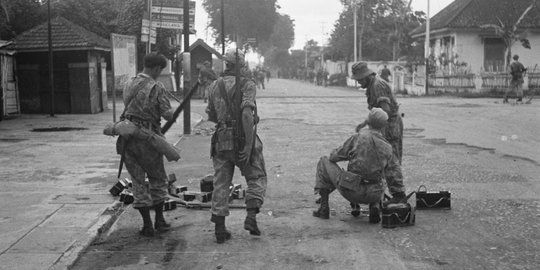
The invasion had been suspected from the start by Indonesian officials. But they did not think that the D-day was December 19, 1948. The reason was that, apart from having supervisors from the Three Nations Commission (KTN) in Yogyakarta, the Republican leaders also believed that the Dutch only dared to attack after they established a temporary federal government consisting of over the Indonesian states that had been built and controlled by the Dutch. This was stated by George McTurnan Kahin in Nationalism and Revolution in Indonesia.
The Vice President of the Republic of Indonesia, Moh. Hatta, was among those who did not expect the attack to come. One day before the invasion took place, Hatta told Colonel T.B. Simatupang that it was impossible for the Dutch military to attack Yogyakarta on December 19, 1948.
"It would be a crazy move if the Dutch dare to do it," said Hatta as narrated by Simatupang in the Report from Banaran: The Story of a Soldier's Experience in the War of Independence.
Hatta believed that the Dutch would attack Yogyakarta. But he doubted that they would do it on December 19, 1948. Hatta estimated that the Dutch would have to took many things into consideration, because that morning the Head of KTN H. Merle Cochran (a US diplomat) was leaving for Jakarta, carrying a letter from the Netherlands in response to questions from the Indonesian government.
"Wouldn't it be a great insult to the United States if the Dutch launched their attack while the Indonesia-Netherlands correspondence with the United States had not yet been finalized?" said Hatta to Simatupang. Unexpectedly, the Dutch carried out their intention earlier.
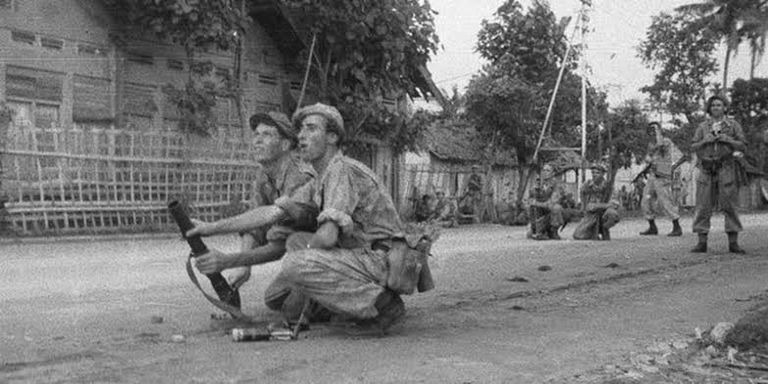
In Jakarta Merle Cochran and Yusuf Ronodiporo (members of the Indonesian delegation in negotiations with the Netherlands) had just arrived in Jakarta on December 18, 1948. There was a plan the next day, they would deliver a letter from the Vice President of the Republic of Indonesia to Dr. L.J.M. Beel (High Representative of the Crown of the Kingdom of the Netherlands).
At around 21.00, Yusuf received a call from the Rijswijk Palace (now the Merdeka Palace) to immediately retrieve a letter addressed to the Indonesian delegation. At 21:15, the letter was already in Yusuf's hands. When the letter addressed to The Chairman of the Delegation of the Republic (without mentioning Indonesia) was opened, Yusuf Ronodipuro was surprised. It turned out that the contents of the copy of the letter which was actually addressed to KTN was a unilateral decision from the Netherlands to cancel the Renville Agreement.
"…and starting Sunday, December 19, 1948 at 00.00 (we) are no longer bound by the agreement," reads one of the letters currently in the Dutch Ministry of Foreign Affairs document entitled Indonesie in de veligheidsraad de Verenidge Naties (November 1948 - January 1949).
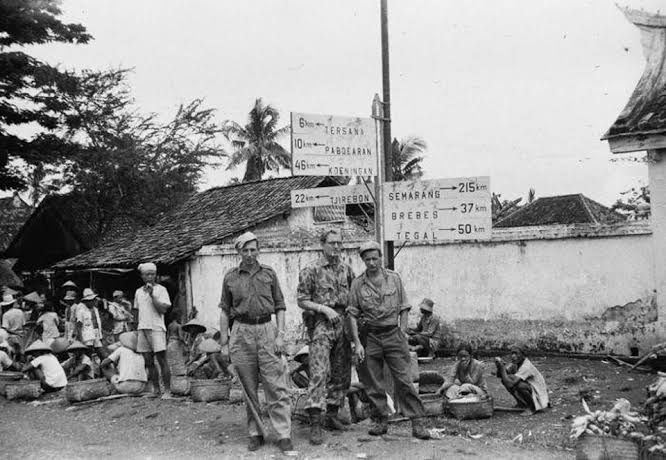
Narrated by Himawan Soetanto in Yogyakarta December 19, 1948: General Spoor vs. General Sudirman, Yusup then took the initiative to send the important news to Yogyakarta via the General Post Office in Jakarta, but to no avail. The telegram operator could not send news, because all contacts with Yogyakarta were suddenly blocked.
There was no other way, Yusuf then went to Cochran's room at the Hotel Des Indes. As soon as he finished reading the letter, the American diplomat's face turned red, until a harsh word came out of his mouth: "Damn it! We have to go to Jogja now!” he shouted.
But in reality the trip to Yogyakarta could not be done that night. It happened because the U.S. Airforce aircraft that used to serve the KTN did not get a flight permit from the Dutch. Cochran's attempt to ask for help from Elink Schuurman (Temporary Head of the Dutch Delegation) was rejected.
The next day, an offensive against Yogyakarta was carried out. Early in the morning the KNIL Commander General S.H. Spoor had led the attack on Yogyakarta via Mitchell B-25 aircraft made in the United States. When the situation was fully under control, from Maguwo, Spoor went to Semarang to observe the advance of ground troops to Yogyakarta and Solo. Around 9 pm, he returned to Jakarta.
Arriving in Jakarta around 11 am, Spoor immediately went to Dr. Beel's house to report the success of Operation Crow. It was there that he collided with a US officer who was serving as a military observer in Indonesia. With a sour face, the officer looked at Spoor.
"What a lovely day to start a war!," the officer quipped, as quoted by J.A. de Moor in General Spoor: The Victory and Tragedy of the Last Dutch Army Commander in Indonesia.
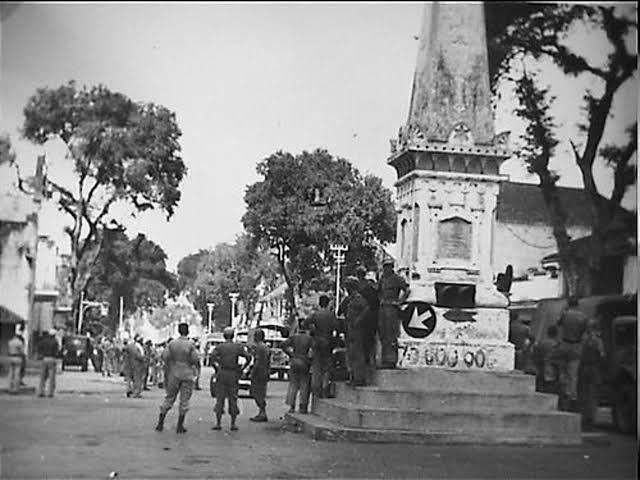
** Your post has been upvoted (11.41 %) **
Curation Trail is Open!
Join Trail Here
Delegate more BP for bigger Upvote + Daily BLURT 😉
Delegate BP Here
Upvote
https://blurtblock.herokuapp.com/blurt/upvote
Thank you 🙂 @tomoyan